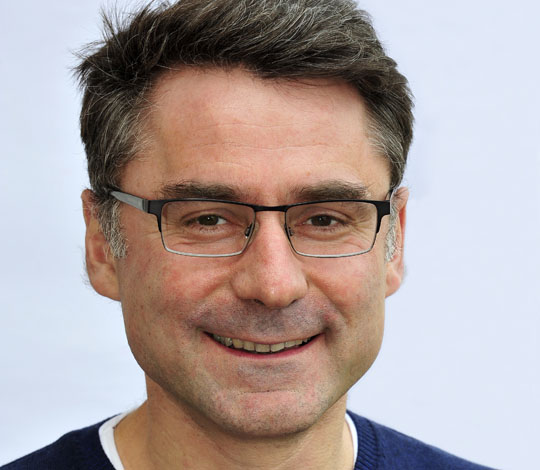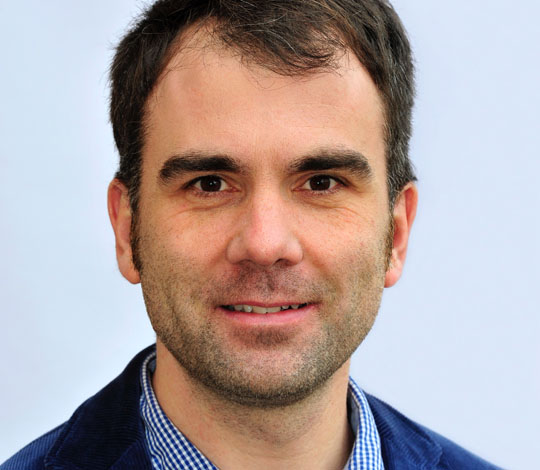Shaping Teacher Training Together
Freiburg, Oct 30, 2017
Research and training are essential to prepare prospective teachers for the ever-evolving realities of teaching: the Freiburg Advanced Center of Education (FACE), a teacher-training network that brings together the University of Freiburg and the Freiburg University of Education, aims to promote the exchange of ideas between researchers and teachers. The conference in November will discuss developments in educational science. Prof. Dr. Jörg Wittwer and Prof. Dr. Matthias Nückles from the Institute of Educational Sciences at the University of Freiburg chatted with Julia Dannehl about the challenges of being a teacher.
 Photo: Christian Schwier/Fotolia
Photo: Christian Schwier/Fotolia
Mr Wittwer, Mr Nückles, what abilities make a good teacher?
Jörg Wittwer: Teachers need skills in many different areas. On the one hand of course they need professional expertise; for instance, a maths teacher must understand something of mathematics. At the same time, however, they also need knowledge of pedagogics, that is, how to structure a lesson, effective learning strategies, classroom management or performance measurement. Moreover, teachers must acquire didactic knowledge, that is, learn how to convey the material of a particular subject, what types of exercises are appropriate and so on.
Matthias Nückles: Motivation and interest are also important. Experience shows that teachers are most effective when they enjoy their job and there is an evident enthusiasm for passing on their subject. Moreover, teachers also have a role to play in upbringing. After all, schools are also responsible for helping the personal development of school pupils.
 “Experience has shown that teachers are most effective when they enjoy their job and there is an evident enthusiasm for passing on their subject,” says Matthias Nückles.
“Experience has shown that teachers are most effective when they enjoy their job and there is an evident enthusiasm for passing on their subject,” says Matthias Nückles.
Photo: Thomas Kunz
To what extent can a university degree prepare for life in school at all?
Wittwer: The university doesn’t promise that students will be completely ready to teach after studying. You need many years of experience for this. Instead, it provides fundamental theories, concepts and approaches that are intended to prepare students for the demands of the profession. Amongst other things, they learn to perceive day-to-day school life from an academic perspective. This enables them later on at work to question and reflect on their own actions and lessons. This constant reflection and ongoing work on oneself are indispensable to being a good teacher.
 “The university doesn’t promise that students will be completely ready to teach after studying. You need many years of experience for this,” says Jörg Wittwer.
“The university doesn’t promise that students will be completely ready to teach after studying. You need many years of experience for this,” says Jörg Wittwer.
Photo: Thomas Kunz
Have the demands on teachers changed in recent years?
Wittwer: Firstly, an orientation towards skills features more in school. School pupils are no longer purely provided with specialized knowledge but are instead supposed to gain complex abilities that enable them to resolve problems themselves. In language lessons, for instance, grammatical phenomena are no longer learned in isolation in written exercises but directly incorporated in a realistic context. School pupils learn to talk about themselves and their lives and to give presentations, for example. Being able to do this can be worthwhile in everyday life. The focus has shifted to practical use. Moreover, “new media” play a large part in lessons, there’s no longer any escape from the Internet in school life.
Nückles: On top of this, in recent decades school pupils have become more heterogeneous. More and more people are trying to get into university. Furthermore, the focus has shifted far more to inclusion as a goal. This means that teachers must be able to plan lessons in such a way that they meet different needs, for instance learning disabilities or handicaps.
What will the conference offer participants?
Nückles: Often there is some delay before academic findings come into practical use in schools. The conference offers the opportunity to find out about current research and get fresh momentum. We will be introducing the FACE competence network and its subprojects. There will be a lecture on the subject of inclusion in teaching methodology and a lecture on the use of educational research in teaching practice. The panel debate will look at the question of what is good teacher training. Participants will include practitioners from Freiburg schools, the Department of Teacher Education and researchers from the universities. We aim to bring together academia and praxis and allow experience and ideas to be exchanged.
Registering for the conference
The Face to FACE – Shaping Teacher Training Together conference takes place on 16th November 2017 in the Aula at the University of Freiburg, Collegiate Building I, 1st floor. Attendance is free, and anyone who is interested is welcome. Lectures will be given in German. Please register to attend by 6th November 2017.
Conference program
www.face-freiburg.de

